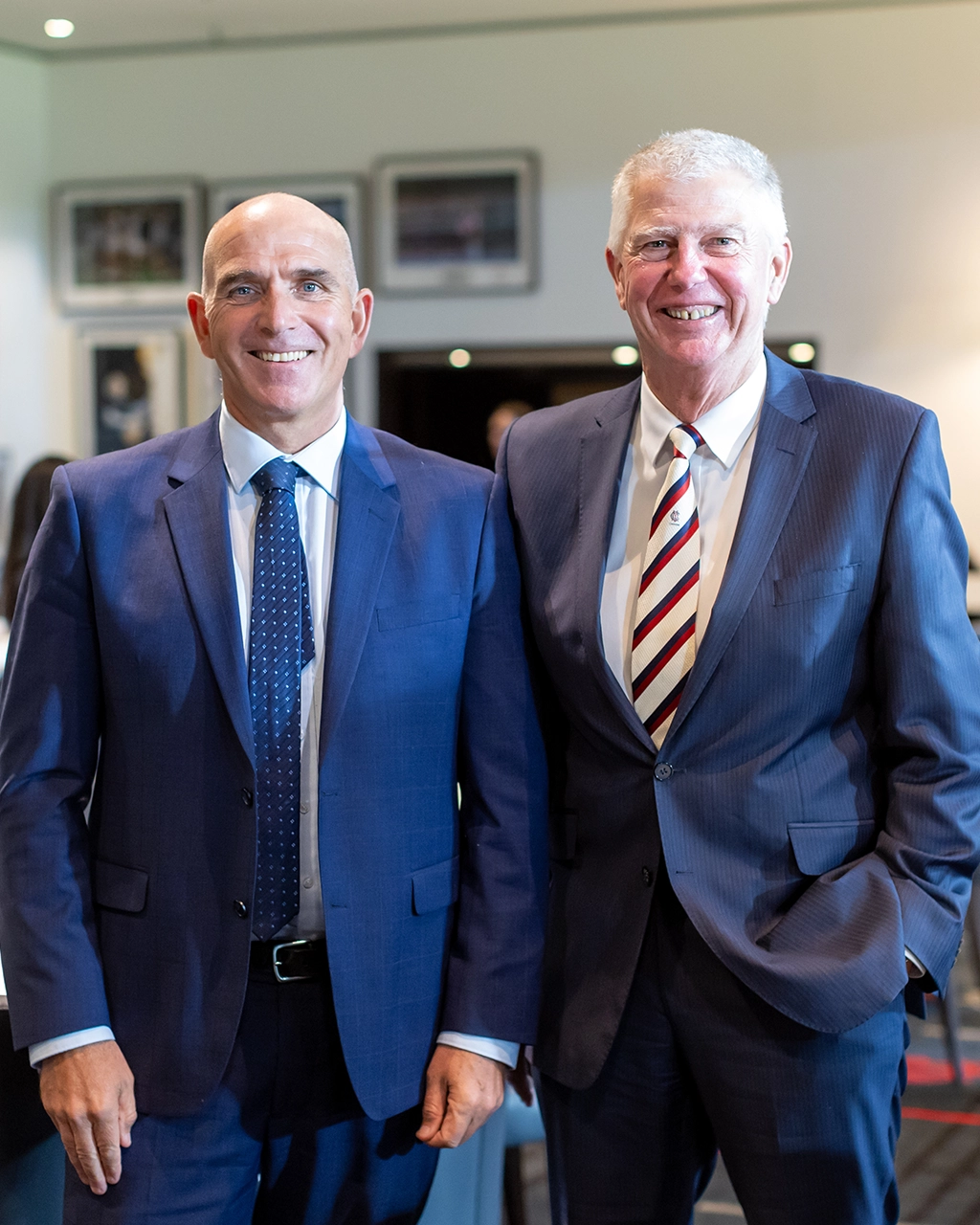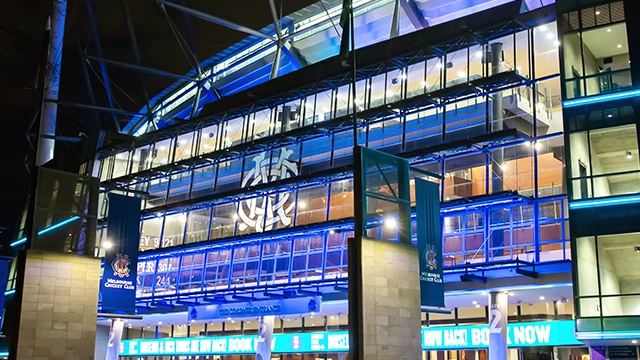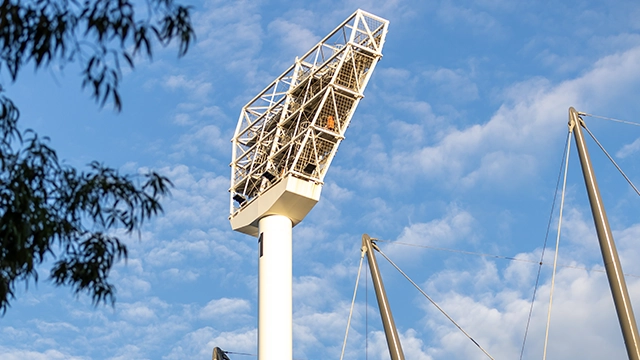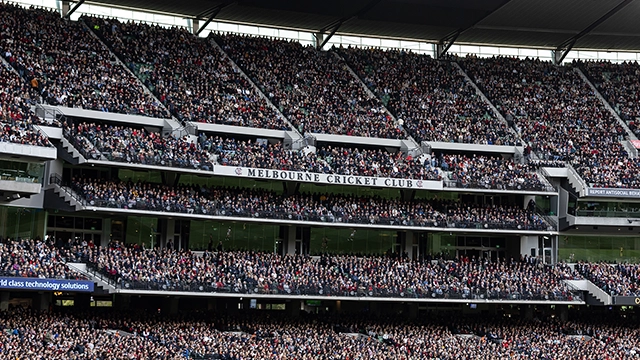The business and affairs of the Club are overseen and controlled by the Committee. The Committee comprises of members of the Club elected to the following honorary office bearer positions, namely, a President, three Vice-Presidents and a Treasurer, and up to nine other club members elected to the Committee.
The Club will be governed with integrity and in a responsible and accountable manner. The Committee and management are dedicated in their approach to work continuously to improve strategies and structures in pursuit of excellence.
This will be achieved by critically assessing performances while respecting the boundaries between the Committee and management.
The Committee meets at least 10 times a year for the purposes of overseeing all aspects of the Club’s business plan and objectives.
It also deliberates on its responsibilities as ground manager of the Melbourne Cricket Ground and Yarra Park for the Melbourne Cricket Ground Trust, under the Melbourne Cricket Ground and Yarra Park Amendment Act 2009.
Additionally, the Committee reviews the performance of the Club’s management team in consultation with the Club’s Chief Executive Officer, measuring results against the business plan objectives, ensuring compliance with legal requirements and monitoring the strategic risk management plan.
A brief description of the Club’s approach to governance is set out below.

Members' Role
The Club’s rules require that a meeting of Full members of the Melbourne Cricket Club be held annually. The purpose of the Annual General Meeting is to:
- Receive reports and audited financial statements from the Committee in respect of the immediately preceding financial year.
- Elect office bearers and other members of the Committee.
- Consider any other business for which notice has been given in accordance with the rules set out in the Club’s constitution.
All Full (voting) members are advised in the notice of the Annual General Meeting about Committee retirements and nominations for election or re-election. Full members are encouraged to attend the Annual General Meeting.
Committee Composition
The composition of the Committee reflects the broad range of experience, skills and knowledge required to oversee the management and control of the Club’s business and affairs.
The current Committee consists of:
- F. Oldfield (President)
- A. Anderson (Vice-President)
- C. Johnston (Vice-President)
- G. Roberts (Treasurer)
- C. Bendall
- A. Brebner
- J. Cain
- P. Dwyer
- T. Johnson
- K. Ramani
- J. Sutherland
Sub-Committees
To assist in the execution of its responsibilities, the Committee has established a number of Sub-committees to which the President appoints Committee members.
Sub-committees operate principally in a review or advisory capacity (except where powers are expressly conferred on or delegated to a Sub-committee by the Committee).
Sub-committees meet as required either monthly or, in some cases, bi-monthly. The current composition and functions of the Cub-committees are summarised below.
Please note: the below information is current to August 2025.
Club Sub-Committee Representatives
F. Oldfield (Chair), A. Anderson, C. Johnston and G. Roberts.
Deals with specific Committee referrals, succession and urgent matters between Committee meetings.
C. Johnston (Chair), A. Brebner and G. Roberts.
Oversees all matters in relation to the cricket activities of the Club and its relationship with cricket authorities.
G. Roberts (Chair), P. Dwyer, T. Johnson and C. Johnston.
Oversees the Club’s accounting and reporting practices including effectiveness of accounting and internal control systems, management reporting and compliance with policy, regulatory and legal requirements. Also reviews risk and evaluates procedures, the scope and quality of audit practices and oversees and monitors IT performance.
Other Committee Responsibilities
In addition to the formal Sub-committees established by the Committee, members of Committee are involved in the following additional Sub-committees and related funds or corporate bodies which meet on an as needs basis: MCC Sporting Sections, Legal, AFL, Melbourne Cricket Club Foundation, Property and Sporting Sections, Melbourne Football Club and Australian Sports Museum Limited.
Members of the Committee who are appointed to cricket and the Club’s various Sporting Sections as Committee representatives are set out below:
| Sport | Committee representative |
|---|---|
| Cricket | Christian Johnston |
| Baseball | Kalpana Ramani |
| Bowls | Fred Oldfield |
| Croquet | James Cain |
| Women's Football | Annabel Brebner |
| Golf | Paula Dwyer |
| Hockey | Annabel Brebner |
| Lacrosse | Tony Johnson |
| Netball | James Sutherland |
| Real Tennis | Carolyn Bendall |
| Squash | Adrian Anderson |
| Target shooting | Tony Johnson |
| Tennis | Adrian Anderson |
Members of the Committee who are appointed as representatives to the Club’s Special Interest Groups are set out below:
| Special Interest Group | Committee representative |
|---|---|
| Bridge Club | Paula Dwyer |
| Long Room Wine & Food Society | Geoff Roberts |
| Military Veterans' Group | James Cain |
| XXIX Club | Tony Johnson |
| Women of the MCC | Carolyn Bendall |
| Young Members | Kalpana Ramani |
Committee Succession
The skill and experience set required by the MCC Committee as a whole is that necessary to govern the running of a large public asset with a significant business as well as a club of more than 150,000 members. The Committee’s role is to represent members of the Club.
The Committee delegates the management of the Club to the executive under the leadership of the Chief Executive Officer. Some matters are reserved for decision by the Committee including Club Rule changes, large financial transactions and capital works, strategy and the business plan. The executive report regularly on the discharge of their responsibilities to the Committee or the Sub-committees that have been established under its governance framework.
In order to govern effectively, the Committee believes it needs members with skills and experiences in a wide range of areas. These may include finance and accounting, audit, risk, health, safety and the environment, contract negotiation and management, strategy, marketing, legal, human resources, construction, large capital projects, sport and sporting bodies both professional and amateur, communications and government.
A succession Sub-committee has been established to assess the skill and experience represented on the Committee and to ensure that when a casual vacancy occurs candidates are selected who not only meet any skill or experience need identified such that the Committee collectively can meet its responsibilities, but also demonstrate behaviours in line with the MCC’s values and culture.
Committee members are submitted to members for election in accordance with term limits. Any Full member of the Club may also submit him or herself for election.






